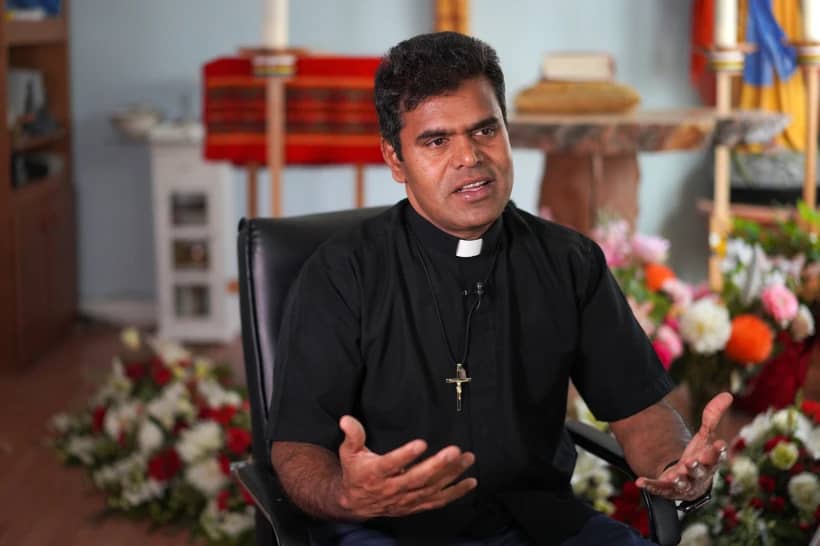BEIRUT — Pope Francis will visit Lebanon in June, the president’s office said Tuesday, in an apparent show of support for the country experiencing an unprecedented economic meltdown.
Francis has held special prayers for Lebanon and has repeatedly said he plans to visit the small country since the economic meltdown began in October 2019.
The announcement about the visit came two days after Francis said he was still working on arranging a meeting with the head of the Russian Orthodox Church, despite that leader’s seeming justification for Russia’s invasion of Ukraine. Francis said he wouldn’t rule out traveling to Ukraine if it would help.
Speaking to reporters while returning home from Malta on Sunday, Francis said he and Patriarch Kirill were considering a possible location in the Middle East. It was not immediately clear if their meeting will be held in Lebanon.
The two religious leader spoke by video on March 16. The call was all the more remarkable because Francis and Kirill have only met once — at the Havana airport in 2016 — in what was then the first encounter between a pope and Russian patriarch in over 1,000 years.
Francis’s trip will be the first visit by a Pope to the Mediterranean nation since 2012, when Pope Benedict XVI paid a three-day visit to Lebanon.
President Michel Aoun’s office said he received the Vatican’s ambassador to Lebanon who informed him that Francis will visit in June and the exact date and schedule would be decided later.
“The Lebanese have been waiting for this visit for a long time to express their gratitude to the Pope for his stance toward Lebanon and its people,” Aoun was quoted as saying.
Francis’s visit will also come after a massive blast at Beirut’s port on Aug. 4, 2020 that killed more than 216 people, injured over 6,000 and damaged parts of the capital. The explosion of hundreds of tons of improperly stored ammonium nitrate was one the largest non-nuclear blasts in history.
The visit also comes as more than 70 percent of Lebanon’s 6 million people, including 1 million Syrian refugees, now live in poverty because of the crisis rooted in decades of corruption and mismanagement by the ruling class.
The Lebanese pound has lost more than 90 percent of its value and tens of thousands of people have lost their jobs during the crisis that the World Bank described as one of the worst the world has witnessed since the 1850s.
Francis insisted last year that Lebanon must remain a “land of tolerance and pluralism” as he welcomed the country’s Christian patriarchs to the Vatican to pray for an end to the economic and political crisis that has thrown the country into chaos and threatened its Christian community.
Lebanon has the largest percentage of Christians in the Middle East and is the only Arab country with a Christian head of state. Christians make up a third of the population. The Vatican fears the country’s collapse is particularly dangerous for the continued presence of its Christian community, a bulwark for the church in the Mideast.









